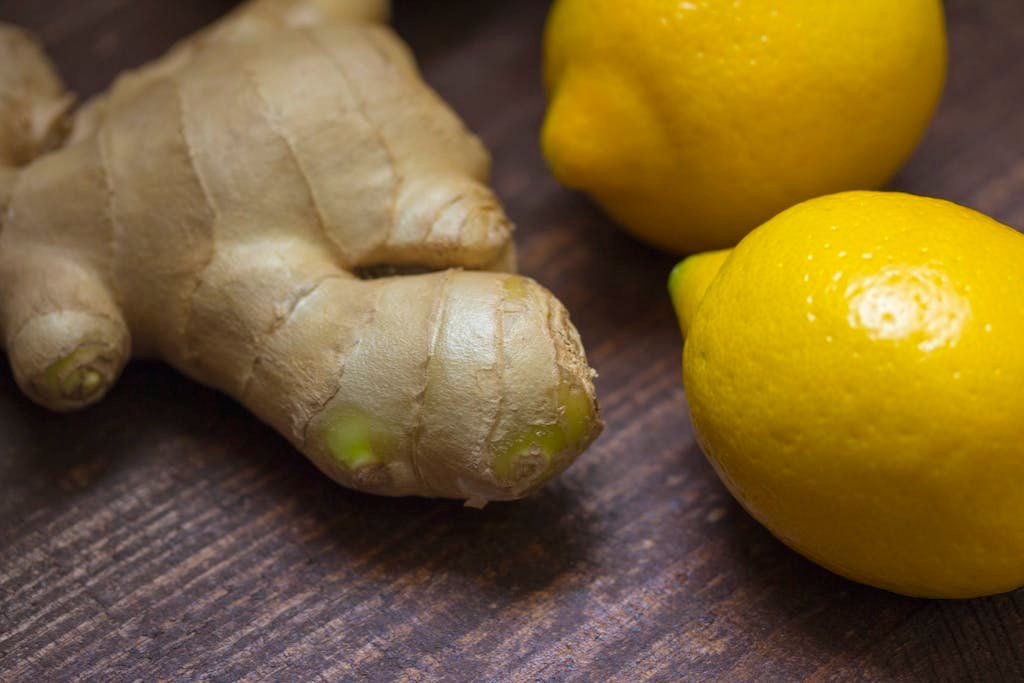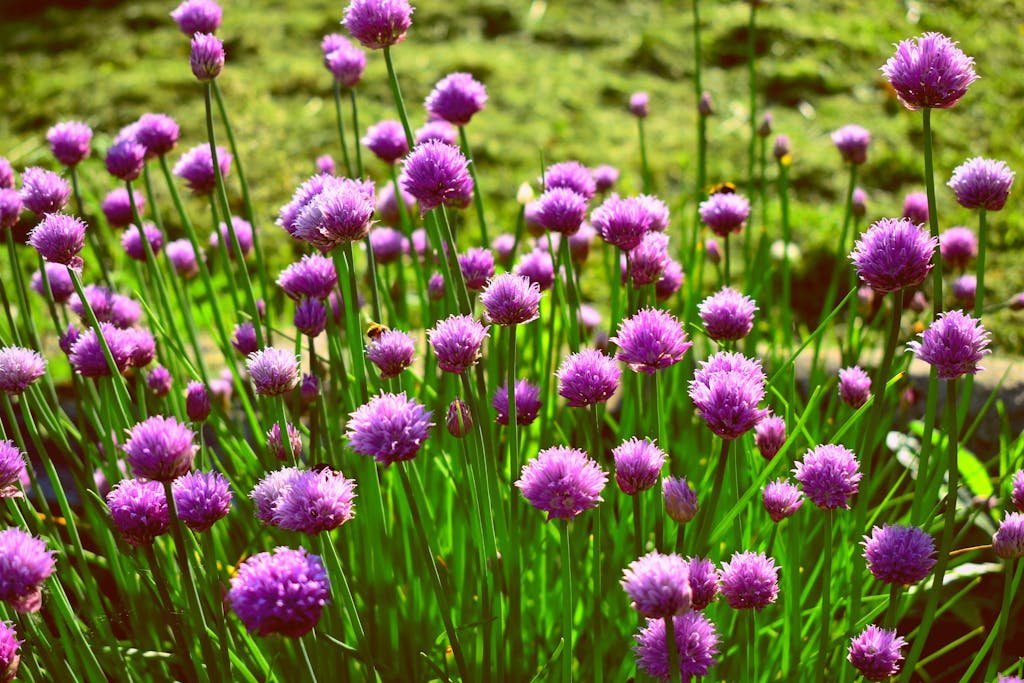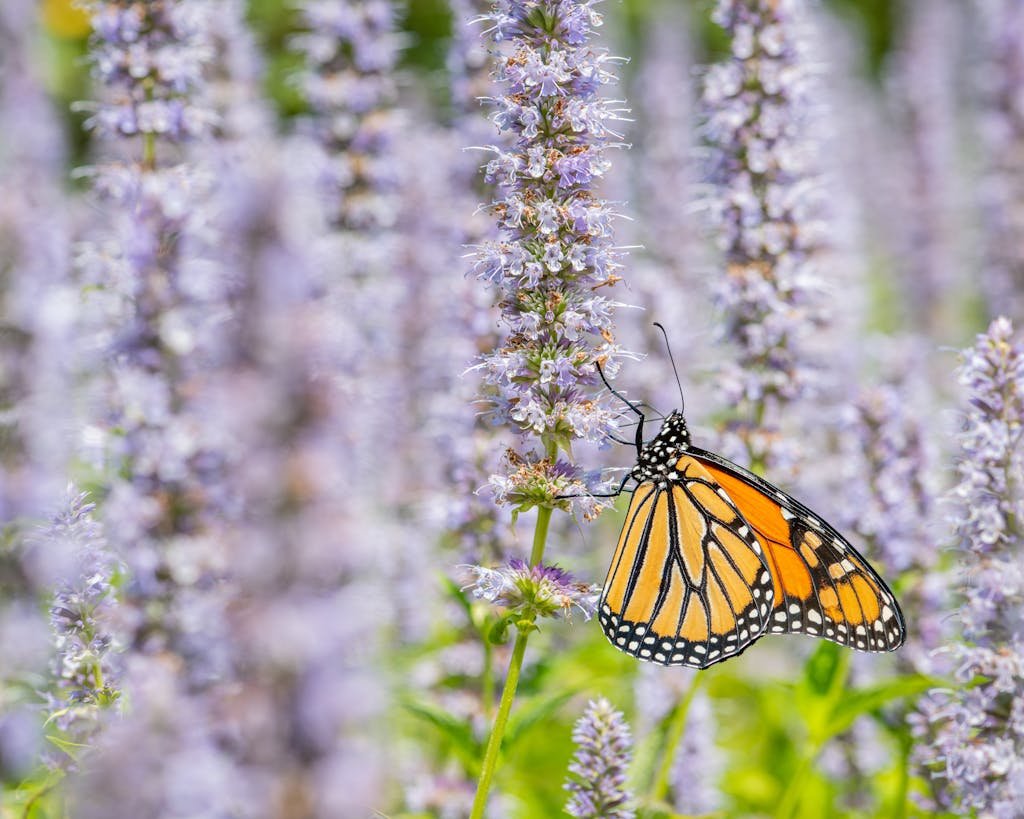Vervain, or Verbena – (Verbena officinalis)
Valerian (Valeriana officinalis) is a plant with a rich history, dating back thousands of years. Known for its distinct odor and valued for its sedative properties, it’s been a go-to remedy for those seeking a natural way to ease anxiety and promote sleep. This perennial herb, native to Europe and parts of Asia, has piqued the interest of modern herbalists and scientists alike.
With its tall, fragrant pink or white flowers, valerian isn’t just a pretty face in the garden. It’s the root that holds the magic, believed to improve sleep quality and reduce the time it takes to fall asleep. As we delve deeper into the world of natural remedies, valerian stands out as a beacon of calm in our fast-paced lives.
Key Takeaways
- Valerian (Valeriana officinalis) has been used for thousands of years for its sedative properties, proving effective in easing anxiety and promoting sleep.
- Its distinct odor, though off-putting to some, stems from volatile oils which contribute to its calming effects, working through enhancing the GABA neurotransmitter system in the brain.
- Clinical studies support valerian’s ability to improve sleep quality and reduce the time required to fall asleep without the dependency risks associated with many synthetic sleep aids.
- Beyond sleep aid, valerian shows promise in reducing stress and anxiety, with ongoing research exploring its wider therapeutic potential including menstrual pain relief.
- The plant’s adaptability to various environments, coupled with its resilient nature, has made it a popular choice in both traditional and modern herbal medicine contexts.
- While further research is encouraged, valerian root remains a cornerstone of herbal remedies, offering a natural alternative for managing sleep disorders and anxiety.
History of Valerian
Valerian, known scientifically as Valeriana officinalis, carries a rich tapestry of folklore and medicinal history stretching back over thousands of years. Historians and botanists trace Valerian’s origins to regions of Europe and Asia, where it was highly esteemed for its sedative effects and utilitarian in various cultural ceremonies.
Ancient Greek physicians like Hippocrates and later, Galen of Pergamon, documented Valerian’s therapeutic applications, particularly its calming effects on the nervous system. These early endorsements laid the groundwork for Valerian’s enduring popularity in herbal medicine.
In the Middle Ages, Valerian rose in prominence across Europe. It was not only used for its sedative properties but also believed to ward off evil spirits. People in medieval times often hung Valerian plants over their doors or included them in potions for protection, showcasing the herb’s diverse uses in folklore.
The Renaissance period saw Valerian being systematically studied for its potential medical benefits. Herbalists and physicians documented its effectiveness in treating insomnia and anxiety, leading to its widespread cultivation across Europe to meet the demand.
In modern times, Valerian’s therapeutic claims have sparked interest in the scientific community. Numerous studies aim to validate the historical claims of its sedative properties. For example, a research study published in the Journal of Ethnopharmacology highlights Valerian’s potential in improving sleep quality and reducing the time to fall asleep. This is particularly relevant in today’s fast-paced world, where sleep disorders and stress are rampant.
The growing body of research on Valerian underscores its potential as a natural remedy for anxiety and sleep disturbances. As scientists continue to explore the intricacies of its pharmacological properties, Valerian remains a valuable herb in the realm of natural medicine, bridging centuries-old traditional knowledge with modern scientific inquiry.
Distinct Odor and Sedative Properties
One of the most notable characteristics of Valerian (Valeriana officinalis) is its distinctive odor. Often described as earthy or somewhat musky, this odor is largely due to the volatile oils and other compounds present in the plant. While the scent can be off-putting to some, it’s a small price to pay for the benefits the herb is believed to offer. Among these, the sedative properties of Valerian stand out as the most significant.
Researchers attribute Valerian’s ability to promote relaxation and improve sleep quality to its interactions with the gamma-aminobutyric acid (GABA) system in the brain. GABA is a neurotransmitter that helps regulate nerve impulses and is crucial for maintaining calm in the nervous system. Valeric acid, one of the key components found in Valerian, is thought to inhibit the breakdown of GABA, thereby enhancing feelings of tranquility and reducing anxiety levels.
A number of studies have investigated Valerian’s efficacy as a natural sleep aid. In clinical settings, Valerian has shown promise in improving sleep quality and decreasing the time to fall asleep for individuals experiencing insomnia. Here is a quick overview of the data:
| Effect | Finding |
|---|---|
| Improvement in Sleep Quality | Participants reported significantly improved sleep quality. |
| Decrease in Time to Fall Asleep | Studies noted a reduction in the amount of time it took individuals to fall asleep. |
Furthermore, unlike some synthetic sleep aids, Valerian is not associated with dependency or significant side effects, making it an attractive option for those seeking a more natural approach to improving sleep.
Valerian’s sedative properties extend beyond aiding sleep. It’s also used to relieve stress and anxiety, with some users reporting a general sense of calm and well-being after taking the herb. This multitiered approach to mental health support, through both direct sedative effects and anxiety reduction, highlights Valerian’s versatility as a therapeutic herb.
Overall, the combination of a distinctive odor and potent sedative properties makes Valerian a plant of great interest in both historical and modern contexts. As research continues to explore its benefits, Valerian remains a compelling component of natural medicine, merging ancient wisdom with contemporary science to offer relief in our fast-paced world.
Valerian as a Natural Remedy for Anxiety and Sleep
Valerian (Valeriana officinalis) has long been cherished for its potent sedative properties, making it a preferred natural remedy for those seeking relief from anxiety and sleep disorders. Enriched with a history dating back to ancient Greece and Rome, its application for medicinal purposes spans centuries, reflecting a deep-seated trust in its effectiveness.
Research illuminating the interaction between Valerian and the human body’s GABA system underscores its role in promoting relaxation and sleep. GABA, a neurotransmitter, plays a crucial part in calming nervous activity. Valerian compounds are thought to enhance GABA’s effectiveness, thereby easing anxiety and facilitating the onset of sleep.
Studies highlight Valerian’s capability to improve sleep quality without the hangover effect often associated with synthetic sleep aids. In a study examining its effects on insomnia, participants experienced a significant reduction in the time it took to fall asleep alongside notable improvements in the quality of sleep.
| Study Aspect | Result Observations |
|---|---|
| Time to Fall Asleep | Significant Reduction |
| Sleep Quality | Notable Improvements |
| Dependency Concerns | None Reported |
In addition to its sleep-inducing benefits, Valerian’s efficacy extends to mitigating stress and anxiety. Its calming properties have been substantiated in several small-scale studies, where participants reported feeling more relaxed and less anxious after taking Valerian.
The beauty of Valerian as a natural remedy lies in its dual capacity to ease anxiety while also promoting restful sleep, addressing two major challenges of modern life without the common side effects linked to pharmaceutical alternatives. Its soothing aroma, although pungent, is a small concession for the profound relaxation and sleep benefits it offers.
While further research is warranted to fully understand the scope of Valerian’s benefits and optimal dosages, its current standing in the herbal remedy community is a testament to its enduring appeal and effectiveness.
Characteristics of Valerian Plant
Valerian, scientifically known as Valeriana officinalis, boasts a rich history as a medicinal herb revered for its sedative qualities. Native to Europe and parts of Asia, Valerian adapts well to damp environments, thriving in areas other plants might find challenging. Over the years, it’s found a home in North America, showcasing its adaptability and resilience.
The plant typically reaches a height of up to 5 feet, distinguishing itself with sweetly scented pink or white flowers that bloom in the summer. Contrary to its pleasant flowers, the root, which contains the bulk of its therapeutic value, releases a starkly distinct and somewhat unpleasant odor when disturbed or cut. This unique scent is often likened to that of wet socks, a characteristic that, surprisingly, doesn’t deter its popularity in the realm of herbal remedies.
A closer examination of the Valerian root reveals its complex chemical composition, which contributes to its potent effects on human health. Among the compendium of compounds, valerenic acid stands out, believed to directly influence the GABA system in the brain. This is significant because GABA (gamma-aminobutyric acid) plays a crucial role in regulating nerve impulses, essentially calming nervous activity. By enhancing GABA’s effectiveness, Valerian helps to promote relaxation and improve sleep quality.
Research supports Valerian’s efficacy, with numerous studies highlighting its positive impact on sleep disorders and anxiety. For example, a study published in the American Journal of Medicine suggests that Valerian not only reduces the time it takes for individuals with insomnia to fall asleep but does so without the side effects commonly associated with synthetic sleep aids.
Despite its well-documented benefits, scientists continue to explore the full extent of Valerian’s therapeutic properties. Its ability to seamlessly integrate with the body’s natural processes, without fostering dependency, marks it as a cornerstone of herbal medicine. As research evolves, the list of conditions Valerian might benefit continues to expand, promising an exciting future for this ancient remedy.
Benefits of Valerian Root
Valerian root, known scientifically as Valeriana officinalis, is widely recognized for its potent health benefits, particularly in the realm of sleep enhancement and stress reduction. Research has consistently backed its use as a natural remedy to improve sleep quality and decrease the time it takes to fall asleep. A study published in the American Journal of Medicine highlighted that individuals with insomnia experienced significant improvement in sleep quality without the side effects often associated with prescription drugs.
Beyond its sleep-promoting properties, valerian root also offers anxiety-reducing benefits. Its impact on the brain’s GABA system can help calm anxiety, making it a valuable tool for those seeking natural methods to manage stress and anxiety levels. Studies in Phytotherapy Research have shown that valerian root can be as effective as some prescription medications for anxiety, without the dependency or withdrawal issues.
Another notable benefit is its potential to alleviate menstrual cramps. The antispasmodic properties of valerenic acid, a key component of valerian root, can help soothe muscle contractions, offering relief from menstrual discomfort. While research in this area is still evolving, preliminary data suggest promising results for those looking for natural pain management solutions.
| Benefit | Key Component | Potential Impact |
|---|---|---|
| Sleep Enhancement | Valerenic Acid | Improves sleep quality, reduces sleep onset |
| Anxiety Reduction | Valerenic Acid | Decreases anxiety levels |
| Menstrual Relief | Valerenic Acid | Alleviates menstrual cramps |
Valerian root offers multiple health benefits, from improving sleep and reducing anxiety to potentially easing menstrual pain. Its natural composition and lack of harsh side effects make it an attractive option for those seeking alternative treatments. As research continues, the full scope of valerian root’s benefits is likely to expand, further cementing its status as a versatile herbal remedy.
Conclusion
Valerian root stands out as a promising natural remedy for those looking to enhance their sleep quality, manage anxiety, and find relief from menstrual discomfort. Its gentle yet effective nature makes it a preferred choice for many seeking alternatives to conventional treatments. With ongoing research, it’s expected that even more benefits of Valerian root will come to light. Embracing Valerian root could be a step towards harnessing the power of nature to improve well-being and quality of life.




